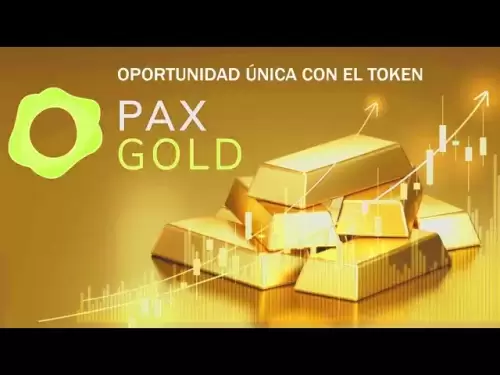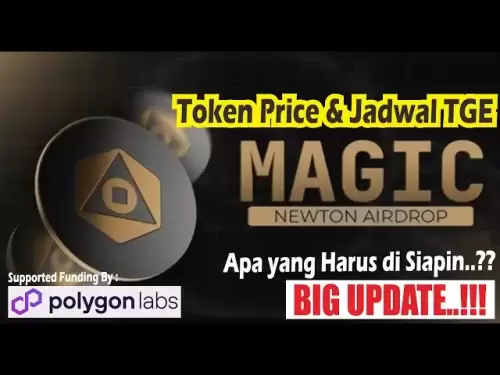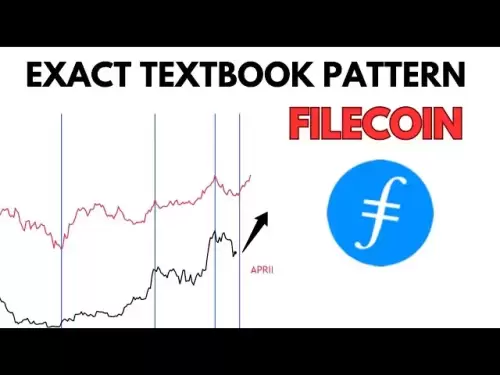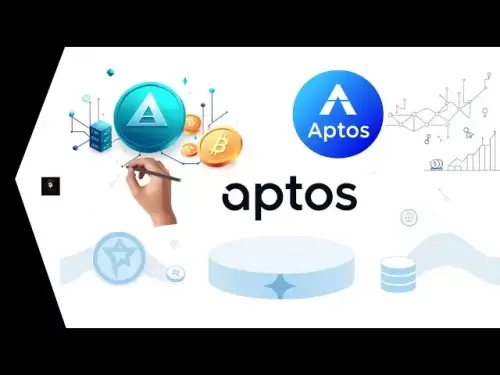-
 Bitcoin
Bitcoin $99,594.2189
-3.59% -
 Ethereum
Ethereum $2,188.5793
-9.00% -
 Tether USDt
Tether USDt $1.0001
-0.02% -
 XRP
XRP $1.9745
-5.82% -
 BNB
BNB $608.9511
-3.73% -
 Solana
Solana $130.4575
-5.93% -
 USDC
USDC $1.0000
0.01% -
 TRON
TRON $0.2637
-3.59% -
 Dogecoin
Dogecoin $0.1493
-5.97% -
 Cardano
Cardano $0.5322
-6.72% -
 Hyperliquid
Hyperliquid $33.9044
3.33% -
 Bitcoin Cash
Bitcoin Cash $449.6411
-5.46% -
 UNUS SED LEO
UNUS SED LEO $8.9629
0.43% -
 Sui
Sui $2.3943
-8.35% -
 Chainlink
Chainlink $11.4402
-7.83% -
 Stellar
Stellar $0.2241
-6.49% -
 Avalanche
Avalanche $16.1489
-4.24% -
 Toncoin
Toncoin $2.7182
-5.94% -
 Shiba Inu
Shiba Inu $0.0...01040
-5.72% -
 Litecoin
Litecoin $78.7882
-4.07% -
 Ethena USDe
Ethena USDe $1.0004
-0.01% -
 Hedera
Hedera $0.1305
-7.45% -
 Monero
Monero $297.0030
-5.32% -
 Dai
Dai $0.9997
-0.02% -
 Polkadot
Polkadot $3.1834
-6.03% -
 Bitget Token
Bitget Token $3.9788
-7.03% -
 Uniswap
Uniswap $6.1327
-10.62% -
 Pepe
Pepe $0.0...08689
-8.30% -
 Pi
Pi $0.4826
-9.65% -
 Aave
Aave $219.8043
-9.69%
What is the recommended Kujira (KUJI) coin storage wallet?
Hardware wallets, like Ledger Nano X, offer the highest level of security for storing Kujira (KUJI) and other cryptocurrencies offline by keeping private keys isolated in a secure physical device.
Dec 25, 2024 at 01:38 am
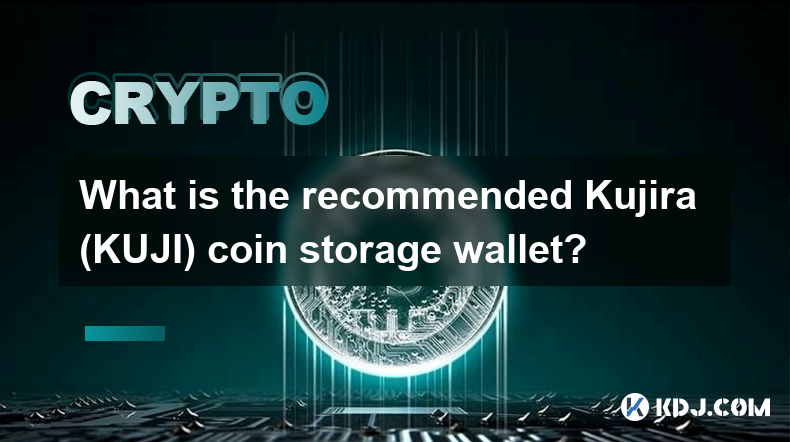
What is the Recommended Kujira (KUJI) Coin Storage Wallet?
Key Points:
- Understand the different types of crypto wallets and their security measures.
- Explore hardware wallets, software wallets, and exchange wallets with their pros and cons.
- Identify the key features to consider when choosing a Kujira (KUJI) wallet.
- Understand the risks associated with each type of wallet and take appropriate precautions.
- Discover the top recommended wallets for storing Kujira (KUJI) coins securely.
Types of Crypto Wallets
1. Hardware Wallets
- Store private keys offline in a secure physical device.
- Offer the highest level of security and are recommended for storing large amounts of crypto.
- Can be more expensive and less convenient to use compared to software wallets.
2. Software Wallets
- Store private keys on a computer or mobile device.
- More convenient to use than hardware wallets, but offer less security.
- Hot wallets are connected to the internet, while cold wallets are not.
3. Exchange Wallets
- Store crypto on exchanges, which are platforms for buying, selling, and storing cryptocurrencies.
- Offer convenience but have less security than hardware and software wallets.
- Your private keys are held by the exchange, which can be vulnerable to hacks.
Features to Consider for Kujira (KUJI) Wallets
- Security: The most important factor to consider, especially for storing a highly speculative asset like Kujira (KUJI).
- Compatibility: Ensure the wallet supports Kujira (KUJI) and other cryptocurrencies you may need.
- Reputation: Choose wallets with a proven track record and strong user reviews.
- Accessibility: Consider your desired level of convenience and the accessibility of the wallet's interface.
Top Recommended Wallets for Kujira (KUJI)
1. Ledger Nano X
- Type: Hardware wallet
- Security: Industry-leading security with offline storage of private keys.
- Support: Supports Kujira (KUJI) and multiple other cryptocurrencies.
- Accessibility: Convenient mobile app available.
2. MetaMask
- Type: Software wallet
- Security: Hot wallet with enhanced security features like phishing protection.
- Support: Wide support for Kujira (KUJI) and numerous other tokens.
- Accessibility: Easy-to-use interface and browser extension.
3. Trust Wallet
- Type: Mobile software wallet
- Security: High-security standards with multi-factor authentication.
- Support: Native support for Kujira (KUJI) and other popular cryptocurrencies.
- Accessibility: User-friendly mobile app with exchange integration.
Risks and Precautions
- Security Compromises: Never share your private keys with anyone.
- Phishing Attacks: Be wary of emails or websites that request your private keys.
- Physical Theft: If using a hardware wallet, store it securely and consider using a decoy wallet for increased protection.
- Reputation Risks: Choose wallets with a proven track record and strong community support.
FAQs
1. Which wallet is the most secure for storing Kujira (KUJI)?
- Ledger Nano X is generally considered the most secure hardware wallet for storing Kujira (KUJI) and other cryptocurrencies.
2. Can I store other cryptocurrencies in the same wallet as Kujira (KUJI)?
- Yes, many hardware and software wallets support multiple cryptocurrencies, including Kujira (KUJI).
3. What happens if I lose my private keys?
- Losing your private keys means losing access to your crypto. It's essential to keep them securely backed up.
4. Are software wallets safe to use?
- Hot software wallets are less secure than hardware wallets, but they can provide adequate protection if used carefully. Implementing strong security measures like two-factor authentication and disabling internet connectivity when not in use can minimize risks.
Disclaimer:info@kdj.com
The information provided is not trading advice. kdj.com does not assume any responsibility for any investments made based on the information provided in this article. Cryptocurrencies are highly volatile and it is highly recommended that you invest with caution after thorough research!
If you believe that the content used on this website infringes your copyright, please contact us immediately (info@kdj.com) and we will delete it promptly.
- Solana, Aptos, and Stable Tokens: Wyoming's Bold Move and the Future of Finance
- 2025-06-23 08:25:12
- Ruvi AI: The Next Binance Coin? A Token Rally to Watch
- 2025-06-23 08:25:12
- Ruvi AI vs. Dogecoin: Can AI Deliver Better ROI?
- 2025-06-23 08:45:12
- SHIB, WLD, BlockDAG: Navigating Crypto's Crossroads in 2024
- 2025-06-23 08:45:12
- Ruvi AI: Revolutionizing ROI Predictions in the Crypto Space
- 2025-06-23 09:05:12
- Ruvi AI: Is This the Token Poised for Bigger ETH Gains?
- 2025-06-23 09:05:12
Related knowledge

How to customize USDT TRC20 mining fees? Flexible adjustment tutorial
Jun 13,2025 at 01:42am
Understanding USDT TRC20 Mining FeesMining fees on the TRON (TRC20) network are essential for processing transactions. Unlike Bitcoin or Ethereum, where miners directly validate transactions, TRON uses a delegated proof-of-stake (DPoS) mechanism. However, users still need to pay bandwidth and energy fees, which are collectively referred to as 'mining fe...

USDT TRC20 transaction is stuck? Solution summary
Jun 14,2025 at 11:15pm
Understanding USDT TRC20 TransactionsWhen users mention that a USDT TRC20 transaction is stuck, they typically refer to a situation where the transfer of Tether (USDT) on the TRON blockchain has not been confirmed for an extended period. This issue may arise due to various reasons such as network congestion, insufficient transaction fees, or wallet-rela...

How to cancel USDT TRC20 unconfirmed transactions? Operation guide
Jun 13,2025 at 11:01pm
Understanding USDT TRC20 Unconfirmed TransactionsWhen dealing with USDT TRC20 transactions, it’s crucial to understand what an unconfirmed transaction means. An unconfirmed transaction is one that has been broadcasted to the blockchain network but hasn’t yet been included in a block. This typically occurs due to low transaction fees or network congestio...

How to check USDT TRC20 balance? Introduction to multiple query methods
Jun 21,2025 at 02:42am
Understanding USDT TRC20 and Its ImportanceUSDT (Tether) is one of the most widely used stablecoins in the cryptocurrency market. It exists on multiple blockchain networks, including TRC20, which operates on the Tron (TRX) network. Checking your USDT TRC20 balance accurately is crucial for users who hold or transact with this asset. Whether you're sendi...

What to do if USDT TRC20 transfers are congested? Speed up trading skills
Jun 13,2025 at 09:56am
Understanding USDT TRC20 Transfer CongestionWhen transferring USDT TRC20, users may occasionally experience delays or congestion. This typically occurs due to network overload on the TRON blockchain, which hosts the TRC20 version of Tether. Unlike the ERC20 variant (which runs on Ethereum), TRC20 transactions are generally faster and cheaper, but during...

The relationship between USDT TRC20 and TRON chain: technical background analysis
Jun 12,2025 at 01:28pm
What is USDT TRC20?USDT TRC20 refers to the Tether (USDT) token issued on the TRON blockchain using the TRC-20 standard. Unlike the more commonly known ERC-20 version of USDT (which runs on Ethereum), the TRC-20 variant leverages the TRON network's infrastructure for faster and cheaper transactions. The emergence of this version came as part of Tether’s...

How to customize USDT TRC20 mining fees? Flexible adjustment tutorial
Jun 13,2025 at 01:42am
Understanding USDT TRC20 Mining FeesMining fees on the TRON (TRC20) network are essential for processing transactions. Unlike Bitcoin or Ethereum, where miners directly validate transactions, TRON uses a delegated proof-of-stake (DPoS) mechanism. However, users still need to pay bandwidth and energy fees, which are collectively referred to as 'mining fe...

USDT TRC20 transaction is stuck? Solution summary
Jun 14,2025 at 11:15pm
Understanding USDT TRC20 TransactionsWhen users mention that a USDT TRC20 transaction is stuck, they typically refer to a situation where the transfer of Tether (USDT) on the TRON blockchain has not been confirmed for an extended period. This issue may arise due to various reasons such as network congestion, insufficient transaction fees, or wallet-rela...

How to cancel USDT TRC20 unconfirmed transactions? Operation guide
Jun 13,2025 at 11:01pm
Understanding USDT TRC20 Unconfirmed TransactionsWhen dealing with USDT TRC20 transactions, it’s crucial to understand what an unconfirmed transaction means. An unconfirmed transaction is one that has been broadcasted to the blockchain network but hasn’t yet been included in a block. This typically occurs due to low transaction fees or network congestio...

How to check USDT TRC20 balance? Introduction to multiple query methods
Jun 21,2025 at 02:42am
Understanding USDT TRC20 and Its ImportanceUSDT (Tether) is one of the most widely used stablecoins in the cryptocurrency market. It exists on multiple blockchain networks, including TRC20, which operates on the Tron (TRX) network. Checking your USDT TRC20 balance accurately is crucial for users who hold or transact with this asset. Whether you're sendi...

What to do if USDT TRC20 transfers are congested? Speed up trading skills
Jun 13,2025 at 09:56am
Understanding USDT TRC20 Transfer CongestionWhen transferring USDT TRC20, users may occasionally experience delays or congestion. This typically occurs due to network overload on the TRON blockchain, which hosts the TRC20 version of Tether. Unlike the ERC20 variant (which runs on Ethereum), TRC20 transactions are generally faster and cheaper, but during...

The relationship between USDT TRC20 and TRON chain: technical background analysis
Jun 12,2025 at 01:28pm
What is USDT TRC20?USDT TRC20 refers to the Tether (USDT) token issued on the TRON blockchain using the TRC-20 standard. Unlike the more commonly known ERC-20 version of USDT (which runs on Ethereum), the TRC-20 variant leverages the TRON network's infrastructure for faster and cheaper transactions. The emergence of this version came as part of Tether’s...
See all articles





















